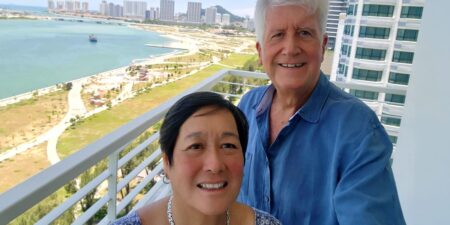In April 2019, I was ambitious, burnt out, and heartbroken, so I took on a temporary assignment in Singapore with my employer, a large tech-based retailer. In the first few weeks, I was pleasantly distracted by the dizzying heights of my new city. There was amazing food, weekend travels, the lure of a big pay check, not to mention temporary escapism from my aching heart.
After a few months living the high life, regularly posting my travels online to a sea of excitement, I decided to move there long-term. I was craving adventure and independence, and the extra cash I’d be making wouldn’t hurt either. Plus, a smaller, less-established marketplace meant a higher chance of promotion at work. Asia was going to be explorable from my doorstep, and I could run from my problems back home. What could go wrong?
I planned for the move to be permanent
Not long after my temporary assignment in Singapore ended, I transitioned to a permanent contract. But as I began the big move, I noticed that something felt off.
I found the pursuit of apartment-hunting unsettling rather than exciting. I suddenly wasn’t sure why I wanted the job, and despite not being too dissimilar to my old role, the responsibilities for my new job relied on my weaker skillsets.
I quickly came down with a serious case of imposter syndrome and started to feel suffocated by work.
I couldn’t find my place
Outside of the office, the cliquey, transient nature of expat life got to me, too. I struggled initially to find real friends.
Looking back, I know now that I was feeling lost about who I was and what I wanted. It wasn’t about loneliness. No shiny relocation bonus or a large expat circle welcoming me to a $200 brunch with open arms could fix that.
I tentatively raised my concerns with people I was meeting at the bourgeois barbecues and beach clubs I was frequenting. “But life is just so easy here,” they would say. Something about that unnerved me. Should life ever be this easy?
“Why would you ever want to move back?” they’d question as they recounted a seamless day-to-day existence and their seemingly huge pay packets. I felt like expat life was holding a mirror up to the shallowest and most capitalist parts of myself. It was starting to make me question my motivations.
London started calling me back
I eventually realized that I was missing London’s grit. I appreciated how much I’d taken for granted back home: pop-up comedy, hidden music, and fusion food without Michelin price tags. I craved access to unfiltered art, culture that felt spontaneous, and I wanted meaningful connections. All things I wasn’t able to find in Singapore.
Singapore was Asia’s utopia — beautifully perfect everywhere you looked. Yet I often felt I was in a dystopian novel. Novels became escape. I reconnected with stories the way I’d religiously done so in my younger years, and I was forced to look internally for deep meaning. For the first time since adolescence, I put pen to paper. My desire to explore concepts — not facts — and my love of storytelling quickly became undeniable. It was becoming clear that this wasn’t just a hobby for me, but something that should be part of my career.
After some reflection, I searched for opportunities back home and transferred to an editorial role in the publishing department of my company. So, just 18 months after I arrived, I packed up and returned home to London.
Books and stories became my day-job. It was heaven for four years, then I started feeling optimistic about another working metamorphosis. Last summer, I quit the corporate ladder and launched myself as a freelance writer.
My next chapter is not totally certain, but I’m looking forward to it. Looking back now, I’m grateful. Singapore ended up being an integral plot device in the story of my life.
Read the full article here
















